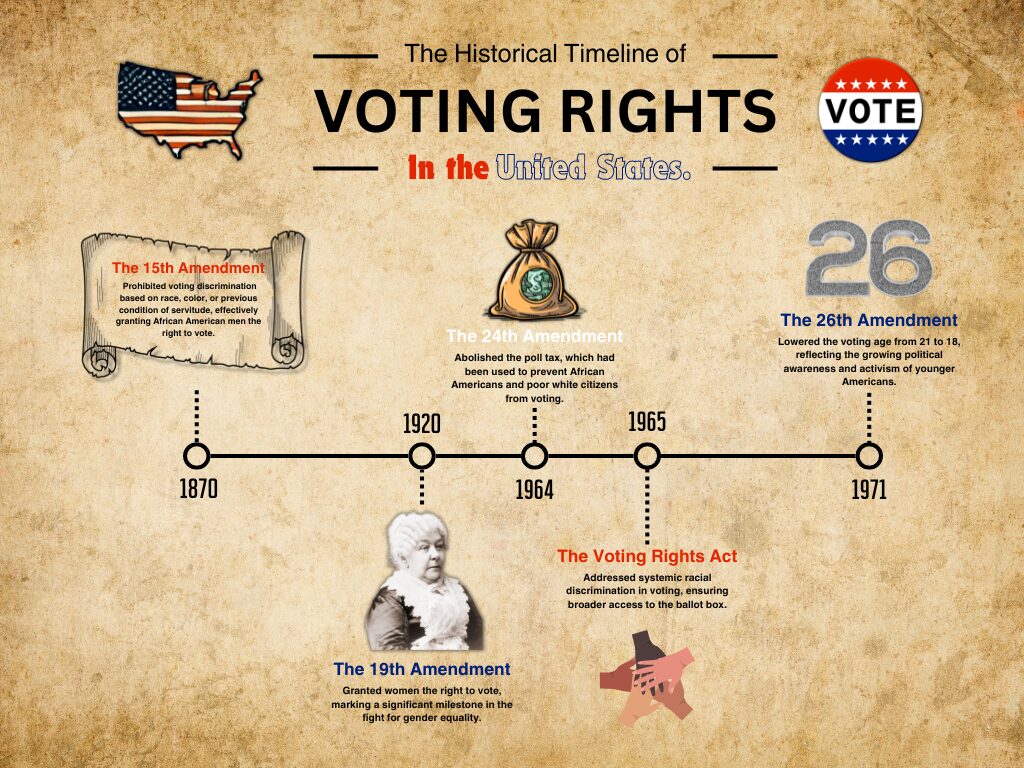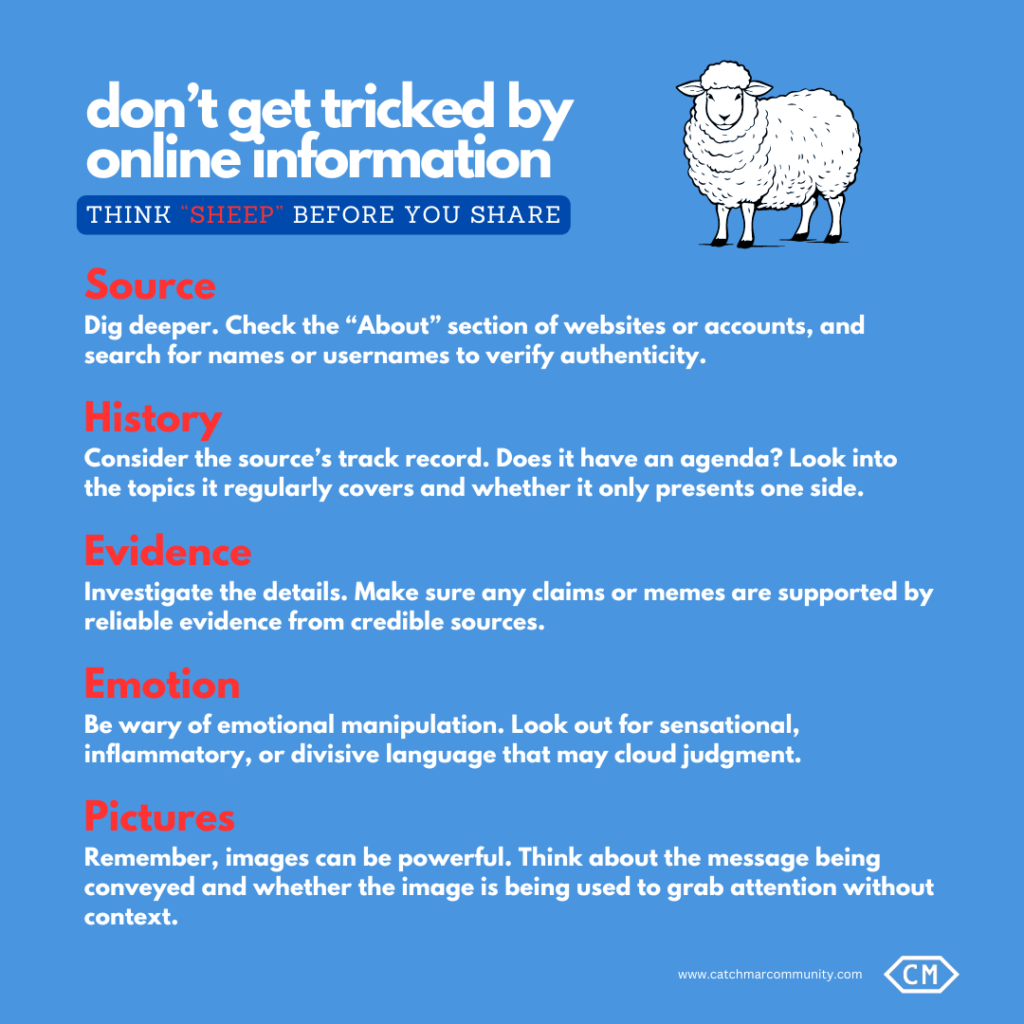
Introduction
Casting a vote is a fundamental right and a cornerstone of democracy, empowering citizens to shape their government and influence policies. Despite this, voter turnout in the United States often lags behind other democratic nations. This article explores the importance of voting, the historical context of voting rights, the impact of voter turnout on election outcomes, and ways to encourage civic engagement.
The Historical Context of Voting Rights
The Evolution of Voting Rights in America
The right to vote in the United States has undergone significant changes since the nation’s founding. Initially, voting was primarily restricted to white, landowning men. Over the centuries, various amendments to the Constitution have expanded this right:
- The 15th Amendment (1870): Prohibited voting discrimination based on race, color, or previous condition of servitude, effectively granting African American men the right to vote.
- The 19th Amendment (1920): Granted women the right to vote, marking a significant milestone in the fight for gender equality.
- The 24th Amendment (1964): Abolished the poll tax, which had been used to prevent African Americans and poor white citizens from voting.
- The Voting Rights Act (1965): Addressed systemic racial discrimination in voting, ensuring broader access to the ballot box.
- The 26th Amendment (1971): Lowered the voting age from 21 to 18, reflecting the growing political awareness and activism of younger Americans.

Milestones in Voting Rights
These milestones in voting rights highlight the ongoing struggle to ensure that all citizens have an equal voice in the democratic process. Understanding this history underscores the importance of exercising the right to vote, which previous generations fought hard to secure.
The Impact of Voter Turnout
How Voter Turnout Influences Elections
Voter turnout plays a crucial role in determining the outcomes of elections. Higher turnout generally means a more representative and legitimate government. Conversely, low turnout can lead to a government that does not accurately reflect the will of the people.
Elections Decided by a Small Margin
There have been numerous instances where elections were decided by a small number of votes, demonstrating the power of every single vote:
- 2000 Presidential Election: The outcome of the U.S. presidential race between George W. Bush and Al Gore hinged on just 537 votes in Florida, leading to a Supreme Court decision that ultimately awarded the presidency to Bush.
- 2017 Virginia House of Delegates: A single vote determined the winner in one district, which subsequently led to a tie in the overall House of Delegates and a random drawing to break the tie.
These examples illustrate that every vote counts and can have a profound impact on the direction of local, state, and national policies.
Encouraging Civic Engagement
The Role of Civic Education
Civic education is essential for fostering an informed and engaged electorate. Schools, community organizations, and the media play a vital role in educating citizens about the importance of voting and how to participate effectively in the electoral process.
Overcoming Barriers to Voting
Despite the importance of voting, many citizens face barriers that prevent them from exercising their right to vote. These barriers can include lack of access to polling places, voter ID laws, and disenfranchisement due to criminal convictions. Addressing these issues is crucial for ensuring that all eligible citizens can participate in elections.
Initiatives to Increase Voter Turnout
Various initiatives have been implemented to increase voter turnout and civic engagement:
- Early Voting and Mail-In Ballots: These options provide greater flexibility for voters, making it easier for them to cast their ballots.
- Voter Registration Drives: Nonpartisan organizations often conduct drives to help citizens register to vote and educate them about the electoral process.
- Get-Out-the-Vote Campaigns: These campaigns encourage people to vote by providing information about polling locations, transportation to the polls, and reminders about voting dates.
The Importance of Being an Informed Voter

Researching Candidates and Issues
Being an informed voter means researching candidates’ backgrounds, positions on key issues, and voting records. Reliable sources of information include official campaign websites, reputable news outlets, and non-partisan organizations. It’s also important to critically evaluate campaign ads and social media information to avoid misinformation.
Fact-Checking and Avoiding Misinformation
In the age of digital media, misinformation can spread quickly. Fact-checking sources like FactCheck.org, PolitiFact, and Snopes can help voters verify the accuracy of the information they encounter. Staying informed and critically assessing information ensures that voters make decisions based on facts rather than falsehoods.
Conclusion
Every vote matters and has the power to influence the direction of government and policy. Understanding the historical context of voting rights, the impact of voter turnout, and the importance of being an informed voter is crucial for active and effective participation in the democratic process. By overcoming barriers to voting and encouraging civic engagement, we can ensure that every citizen’s voice is heard and that our government truly represents the will of the people.
Read last weeks article here.
Brent is the Managing Partner of CatchMark Technologies and a seasoned technologist with over 25 years of experience in IT leadership, cybersecurity, and technical operations. He began his career serving in the U.S. Army, where he worked extensively with electronics—laying the foundation for his lifelong passion for technology and problem-solving. Brent holds a Certified Information Systems Security Professional (CISSP) certification and currently leads CatchMark’s Cybersecurity and Tech Support teams. Known for his strategic thinking and hands-on expertise, he excels in guiding secure, scalable solutions and driving innovation across complex technical environments.
Must See
-


Arts/Entertainment
/ 3 hours agoWhite Lake Live Music: June 23–29 Lineup
It’s a big week for local music fans! 🎶 Eight Whitehall and Montague venues...
By Amy Yonkman -


Community
/ 2 days agoHunters and Anglers: Urban Deer Hunting in Whitehall and Montague
WHITEHALL & MONTAGUE, MI — As deer populations continue to rise across West Michigan,...
By Kara Raeth -


Community
/ 2 days agoStay Safe This Summer on Lake Michigan and White Lake
As summer heats up in the White Lake area, more people are heading to...
By Kara Raeth















